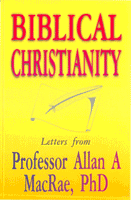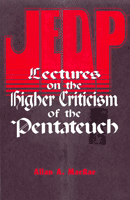IBRI Books

IBRI Publications available as Kindle eBooks
(over 110 Books, Reports and Occasional Papers available)Books on science and the Bible listed separately
|
Note on Fair Use You are encouraged to browse
the listings and use this site as a library resource for your personal
use. This includes downloading a single copy of a complete document for
personal use.
All of the materials are copyrighted, and all rights are reserved. It is IBRI's intent to respect the intellectual property rights of authors and content producers. Any content on this web site not owned outright by IBRI is used by permission of the copyright holder or in our judgment is covered by the 'fair use' guidelines governing use in educational materials. Authors or legal copyright owners may revoke permission and/or request removal of their own content from this web site by contacting webmaster@ibri.org. |
Books by Samuel M. Zwemer
The following books are by
Samuel M. Zwemer (1867-1952), a Christian Missionary to Muslims.

Biography of Raymund Lull, First Missionary to the Moslems
By Samuel M. Zwemer (1902)

Christianity the Final Religion
By Samuel M. Zwemer (1920)

Islam and Missions
By Samuel M. Zwemer (1911)

Our Moslem Sisters
By Samuel M. Zwemer with Annie Van Sommer (1907)

The Moslem Doctrine of God
By Samuel M. Zwemer (1905)

The Moslem World
By Samuel M. Zwemer (1908)
Other Books
Below are book length treatments of important topics published
electronically
in html format by IBRI. Some of this material was previously
published
in print format. All of these books have been updated prior to
posting
on www.ibri.org.
by Daniel E. Wonderly
Copyright
© 1987 by Daniel E. Wonderly
Electronic Version Copyright © 2006 by Edna (Mrs. Daniel E.)
Wonderly
This work is an attempt to enlist creationists in a serious study of the actual characteristics of the earth's sedimentary strata. Creationist organizations are emphasizing some important truths of creation, but they have neglected the data of earth-science research to such an extent that disgrace has now descended upon the doctrine of biblical creation throughout the nation. In this carefully documented book the author encourages evangelical Christians to take an interest in the real data of earth science, and shows them how they can use such information to alleviate this problem.
God's Time-Records in Ancient Sediments
We are directing this book to the Christian reading public. Numerous groups of Christians in North America now recognize sizeable problems having to do with the relation of science to the Biblical account of creation. However I believe that it is possible to properly understand God's meaningful world, and at the same time participate in the fallowship which He wants his own people to have with one another. The sharing of observations and ideas concerning God's record in nature can be a sosurce of much joy and fellowship, as well as an enhancement of our lover for God. We hope that at least the early chapters of this work will be found to be inspirational reading, while the other chapters may be used as a manual of important information concerning the earth and the studies which Christians have made with respect to creation. [From the Preface]
by
David Newquist (Physics
Department, Tunghai University, Taichung, Taiwan ROC)
Copyright
© 2002 by David Newquist
Electronic Version Copyright © 2003 by Interdisciplinary
Biblical
Research Institute
This book is written for Christians and non-Christians, for scientists and non-scientists, who seek answers about how science and the Christian faith fit together. The focus is on basic issues and "conflicts" that seem to arise as sincere men and women contemplate matters of science, faith and philosophy. Chapters 1 and 2 discuss basic concepts in the history and philosophy of science. Chapters 3 and 4 discuss faith in general and Christian faith in particular. Chapter 5 discusses the relationship between faith and science and conflicts that may arise between them. These chapters form about a third of the book. The next two chapters form the bulk of the book, and consider how we know the God of the Bible exists, and then specifically address a major issue, the age of the universe, that is a focus of controversy between science and Christian faith. The book closes with a chapter on the Author's personal view of the fitness between science and the Christian faith.
And
It Was So: The Genesis Creation Riddle
by
Dallas E.Cain with Karen L. Trespacz
Copyright
© 2002 by Dallas E. Cain
Electronic Version Copyright © 2003 by Interdisciplinary
Biblical
Research Institute
From the introduction: "God has authored two major works: the Bible and the physical world. As did many thinkers before us, we call these two main works Godâs Book of Words and Book of Works. It is not too much to expect that when his two works address the same subject, they will be consistent. Where there appear to be inconsistencies, we are not looking at an error; we are looking at a riddle. At first glance, the inconsistencies may seem impossible to figure out. But once the inconsistencies are properly understood, the answer, like the answer to a riddle, is clear, and everything falls neatly into place."
Evolution:
Nature and Scripture In Conflict?
by
Pattle P. T. Pun (Professor of Biology, Wheaton
College,
Wheaton, IL)
Copyright
© 1982 by The Zondervan Corporation, Grand Rapids, Michigan
Electronic Version Copyright © 2002 by Interdisciplinary
Biblical
Research Institute
From the forward: "Dr. Pun's book deals with both the factual data and the probable mechanisms involved in bringing living organisms onto the planet. The intricacies of cell biology and gross anatomy are presented in concise statements that show the significance of such knowledge. The evidence leads the author to conclude that there has been some descent with modification following the creation of the original species. However, Dr. Pun does not accept the total theory of evolution even in its so-called theistic form. This volume is especially commendable for stating alternative viewpoints and evaluating each. . . . Material not readily found in popular textbooks is presented, and even advanced students of origins will find material not usually dealt with in many courses dealing with creation and evolution. For example, the volume contains a fascinating account of Genesis contrasted with Babylonian stories of creation; judgments on methods of dating the age of the earth and Christian views correlating Genesis with conclusions of the geochronologists; history of the growth of ideas in both theological and scientific areas; and conclusions based on "empirical adequacy" and "rational coherency," which are two of the author's criteria."HANDBOOK OF EARLY MUHAMMADAN TRADITION
Mosaic Authorship of the Pentateuch
by D. MacDill (1896)
Alphabetically Arranged
by A. J. Wensinck, Litt. D. (1927)
KORANISCHE UNTERSUCHUNGEN
by Josef Horovitz (1926)
This book is available as a pdf document and as searchable pdf and text pages.
The Qur'an: An Introductory Essay
by Theodor Nöldeke, Edited by N. A. Newman. IBRI, 1992.
A short essay written by one of the outstanding Western scholars on the Qur'an at his prime, it includes what he thought important for a concise introduction. Edited with additional notes and commentary.

Biblical Christianity
Letters from Professor Allan A. MacRae, Ph. D (1994)

The Prophecies of Daniel
By Allan A. MacRae (1991)

The Gospel of Isaiah
By Allan A. MacRae (1977)

Studies in Isaiah
By Allan A. MacRae (1995)

JEDP: Lectures on the Higher Criticism of the Pentateuch
By Allan A. MacRae (1991)
Book Reviews

You can contact IBRI by e-mail at: webmaster@ibri.org
Last Updated January, 2020; Page Last Updated December 27, 2005 - Update Log

